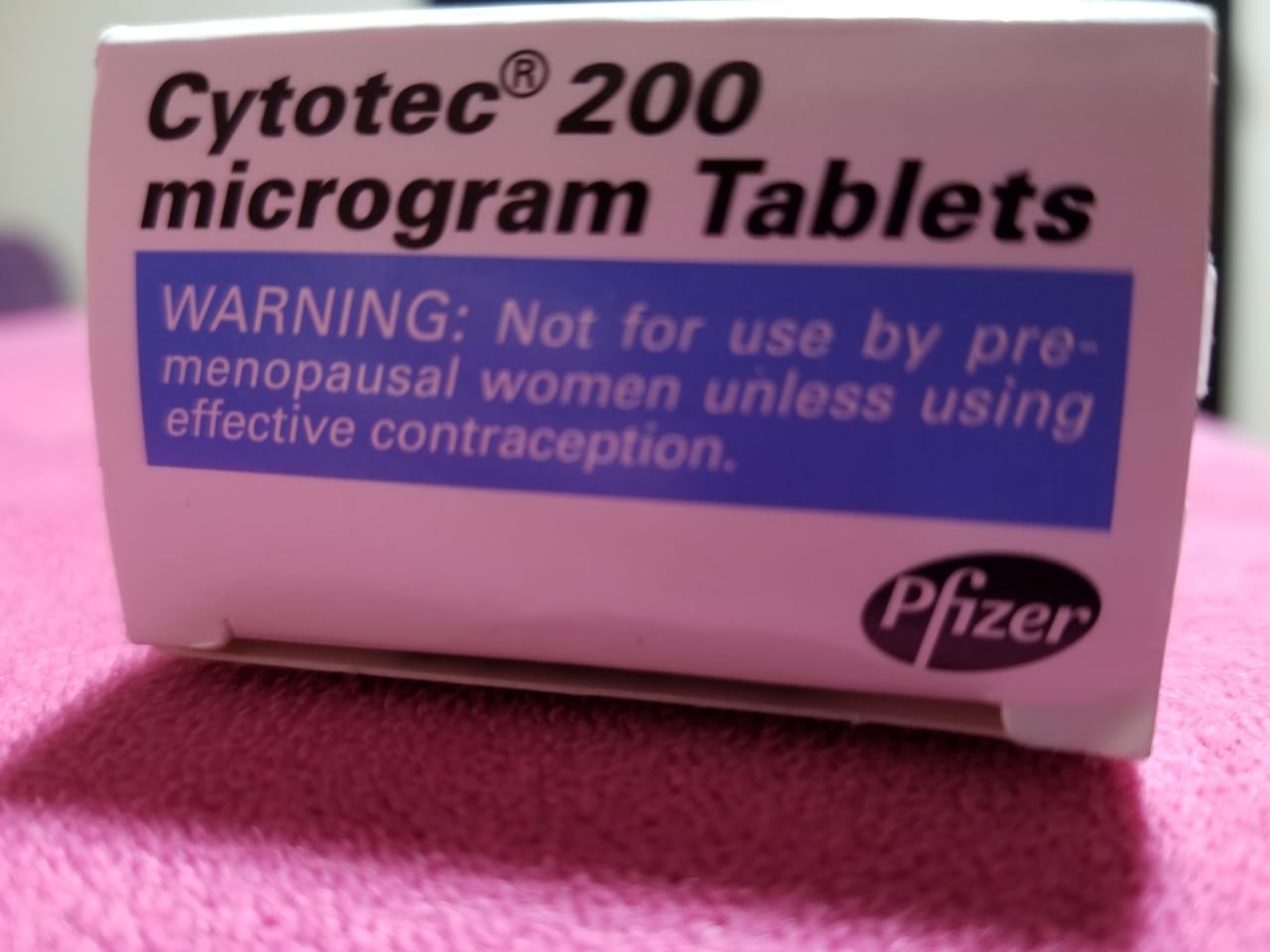Table of Contents
What is misoprostol?
What is misoprostol? Misoprostol reduces stomach acid and helps protect the stomach from damage that can be caused by taking non-steroidal anti-inflammatory drugs (NSAIDs) such as aspirin, ibuprofen (Advil, Motrin), naproxen (Aleve), celecoxib, diclofenac, indomethacin, and meloxicam. And others. Misoprostol is used to prevent stomach ulcers during treatment with aspirin or NSAIDs. Misoprostol may also be used for purposes not listed in this medication guide

Important information on Misoprostol
Misoprostol can cause birth defects, premature labor, uterine rupture, miscarriage, incomplete miscarriage, and serious uterine bleeding. Do not use misoprostol if you are pregnant. If you are able to become pregnant, you will need to have a negative pregnancy test before starting this treatment. You will also need to use effective birth control to prevent pregnancy during treatment.
Before taking this medicine Misoprostol
Before taking this medication, you should not use misoprostol if you are allergic to misoprostol or other prostaglandins, or if you are pregnant. To make sure misoprostol is safe for you, tell your doctor if you have: inflammatory bowel disease
(IBD), irritable bowel syndrome (IBS), or other intestinal problems. Heart disease; Or if you are dehydrated. FDA pregnancy category X. Misoprostol can cause birth defects, premature labor, uterine rupture, or miscarriage
Or incomplete miscarriage and serious uterine bleeding. Do not use misoprostol if you are pregnant. Use effective birth control to prevent pregnancy while you are using this medicine, and for at least 1 month after your treatment ends. If you can get pregnant, you will need it
Do not need to have a negative pregnancy test before starting misoprostol. Treatment with this medicine should start on the second or third day of the menstrual cycle. Stop taking this medicine and tell your doctor right away if you become pregnant during treatment. It is not known
Whether misoprostol passes into breast milk or if it could harm a nursing baby. Tell your doctor if you are breast-feeding a baby
How should i take misoprostol?
Follow all directions on your prescription label. Do not take this medication in larger or smaller amounts or for longer than recommended. Do not share this medicine with another person. Misoprostol is usually taken with meals and at bedtime. Follow your doctor’s instructions. may be
You feel nausea, stomach cramps, or diarrhea while taking this medicine, especially during the first few weeks after you start taking misoprostol. These symptoms usually last for about a week. Call your doctor if you experience severe nausea or pain in
Stomach or diarrhea that lasts for more than 8 days. Read all medication guides or patient instructions provided with this medication each time you receive a new supply. Store at room temperature away from moisture and heat.
What happens if I miss a dose? Take the missed dose as soon as you remember. However, if it is almost time for the next dose, skip the missed dose and take the next regularly scheduled dose. Do not take a double dose of this medication.
What happens if I miss a dose?
Seek emergency medical attention or call the Poison Help line
What should I avoid while taking misoprostol?
? Ask your doctor before using an antacid, and use only the type your doctor recommends. Some antacids can increase your risk of developing diarrhea while taking Misoprostol
Side effects of misoprostol
Get emergency medical help if you have any of the following signs of an allergic reaction: difficult breathing, swelling of your face, lips, tongue, or throat. Call your doctor at once if you have: severe stomach pain or diarrhea; Or symptoms of dehydration – feeling
Excessive thirst or heat, inability to urinate, heavy sweating, or hot and dry skin. Common side effects may include: diarrhea. Stomach pain, nausea, stomach upset, and gas. Vaginal bleeding or spotting, heavy menstrual flow; Or menstrual cramps. This is not a complete list of side effects and others may occur. Call your doctor for advice
About medical side effects. You may report side effects to the FDA at 1-800-FDA-1088. See also: Side effects of misoprostol (in more detail)
What other drugs will affect misoprostol?
Other drugs may interact with misoprostol, including prescription and over-the-counter medicines, vitamins, and herbal products. Tell each of your healthcare providers about all medicines you use now and any medicine you start or stop using
Additional information remember
Keep this and all other medicines out of the reach of children, do not share your medicines with others, and use this medicine only for the indication prescribed. Always consult your health care provider to ensure that the information presented on this page applies to your personal circumstances. Copyright 1996-2018 Cerner Multum, Inc. Version: 8.01.0,
article source drugs.com
References
- “ACOG Practice Bulletin No. 200: Early Pregnancy Loss”. Obstetrics and Gynecology. 132 (5): e197–e207. November 2018. doi:10.1097/AOG.0000000000002899. PMID 30157093.
- ^ Villar J, Gülmezoglu AM, Hofmeyr GJ, Forna F (December 2002). “Systematic review of randomized controlled trials of misoprostol to prevent postpartum hemorrhage”. Obstetrics and Gynecology. 100 (6): 1301–12. doi:10.1016/S0029-7844(02)02371-2. PMID 12468178. S2CID 24561459.
- ^ O’Brien P, El-Refaey H, Gordon A, Geary M, Rodeck CH (August 1998). “Rectally administered misoprostol for the treatment of postpartum hemorrhage unresponsive to oxytocin and ergometrine: a descriptive study”. Obstetrics and Gynecology. 92 (2): 212–4. doi:10.1016/S0029-7844(98)00161-6. PMID 9699753.
- ^ Lokugamage AU, Sullivan KR, Niculescu I, Tigere P, Onyangunga F, El Refaey H, et al. (September 2001). “A randomized study comparing rectally administered misoprostol versus Syntometrine combined with an oxytocin infusion for the cessation of primary post partum hemorrhage”. Acta Obstetricia et Gynecologica Scandinavica. 80 (9): 835–9. doi:10.1034/j.1600-0412.2001.080009835.x. PMID 11531635. S2CID 23335277.
- ^ Bradley SE, Prata N, Young-Lin N, Bishai DM (April 2007). “Cost-effectiveness of misoprostol to control postpartum hemorrhage in low-resource settings”. International Journal of Gynaecology and Obstetrics. 97 (1): 52–6. doi:10.1016/j.ijgo.2006.12.005. PMID 17316646. S2CID 23593148.
- ^ Derman RJ, Kodkany BS, Goudar SS, Geller SE, Naik VA, Bellad MB, et al. (October 2006). “Oral misoprostol in preventing postpartum haemorrhage in resource-poor communities: a randomised controlled trial”. Lancet. 368(9543): 1248–53. doi:10.1016/S0140-6736(06)69522-6. PMID 17027730. S2CID 22275092.
- ^ Sanghvi H, Zulkarnain M, Chanpong GF (2009). Blouse A, Lewison D (eds.). Prevention of Postpartum Hemorrhage at Home Birth: A Program Implementation Guide (PDF). United States Agency for International Development. Archived (PDF) from the original on 6 December 2013.[page needed]
- ^ Prata N, Passano P, Bell S, Rowen T, Potts M (July 2013). “New hope: community-based misoprostol use to prevent postpartum haemorrhage”. Health Policy and Planning. 28(4): 339–46. doi:10.1093/heapol/czs068. PMID 22879523.
- ^
